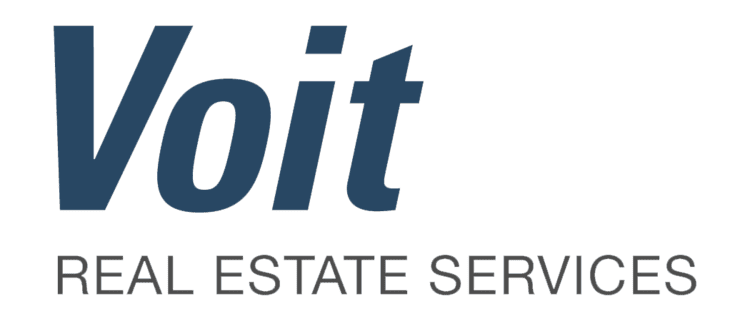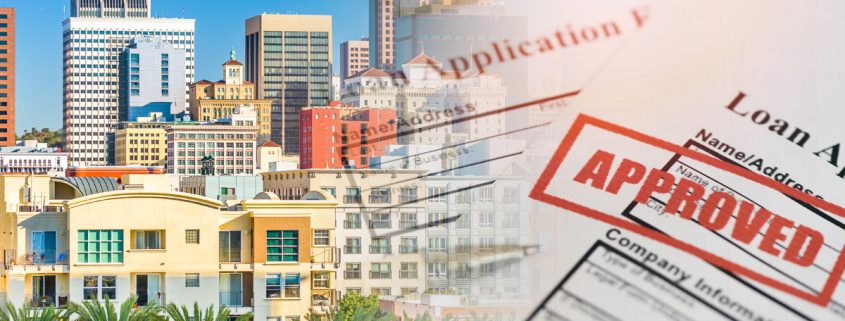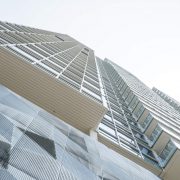With Industrial Rents Remaining High, SBA Loans May Offer Pathway for Tenants to Become Owner-Occupiers
Many Southern California industrial tenants who signed leases pre-COVID and are now looking to renew are experiencing sticker shock. At the close of 2019 — before the pandemic — industrial asking rates in those markets hovered around a dollar per square foot. Fast forward to today, and despite increased vacancy and a growing amount of sublease space on the market, asking rents in those markets have increased by 50% to 75%.
Although pricing for industrial assets remains high and interest rates don’t appear to be coming down anytime soon, acquiring a property may still make sense for business owners looking to control occupancy costs long-term. While lending standards for the larger banks have tightened, SBA loans are still an attractive financing option for some smaller operators seeking to purchase a building.
Brokers for Voit Real Estate Services report that while inventory remains low, there has been a significant pullback from institutional buyers, creating opportunities for owner-occupiers. While owning a building may not be cheaper than renting it, business owners can build equity, reap tax savings, and control costs with the fixed-rate financing offered by some SBA loans.
“Supply is still really low, and there’s not a lot out there, but the market is softening a bit,” says Greg Marx, VP in VOIT’s San Diego office, who adds that while last year there were only a couple of buildings for sale in the Miramar neighborhood, there are about 15 available now. “Inventory is still scarce from a historical perspective in the market, but there’s more availability than there was.”
Financing with SBA Loans
For business owners unfamiliar with the two primary loans offered by the SBA for real estate acquisitions, here’s a quick primer on the SBA 504 Loan and SBA 7(a) to help you decide which program is right for your business. Below is an incomplete overview of the loans:
The 504 Loan Program

An SBA 504 loan is structured differently than conventional loans. With an SBA 504, the bank typically finances 50% of the property value, the CDC (like California Statewide) provides up to 40%, and the borrower has a 10% minimum down payment (versus 25% – 40% with conventional loans).
- The 504 Loan Program provides long-term, fixed-rate financing for major fixed assets that promote business growth and job creation.
- 504 loans are available through Certified Development Companies (CDCs), SBA’s community-based partners who regulate nonprofits and promote economic development within their communities. CDCs are certified and regulated by the SBA.
- The maximum loan amount for a 504 second trust deed loan (called the debenture loan) is $5 million. (It should be noted that the SBA 504 second trust deed amount does not affect the amount the participating bank can loan. For instance, if a borrower wishes to purchase a property for $20 million, they must provide a $2 million downpayment, with $5 million provided by the CDC and the remaining financing from the participating bank.
- SBA 504 Loans only require a minimum 10% downpayment. Loan repayments are available in 10-, 20-, and 25-year maturity terms and are pegged to an increment above the current market rate for 10-year U.S. Treasury issues. As of November 13, those rates are 7.01% for a 25-year, 7.02% for a 20-year, and 7.20% for a 10-year.
To be eligible for a 504 loan, your business must:
- Operate as a for-profit company in the United States or its possessions.
- Have a tangible net worth of less than $15 million.
- Have an average net income of less than $5 million after federal income taxes for the two years preceding your application.
- Existing businesses must occupy at least 51% of the building.
- Most 504 loans (60.5%) are between $350,000 and $2 million.
SBA 7(a) Loan Program

- The SBA 7(a) provides loan guarantees to lenders, allowing them to give financial help to small businesses with special requirements.
- SBA 7(a) loans can be used for acquiring, refinancing, or improving real estate and buildings (as well as a host of other business-related uses).
- For real estate purposes, the borrower is required to occupy 51% of the total square footage of the building within 12 months of escrow closing.
- SBA provides the lender a 75% to 90% government guarantee.
- There are no balloon payments and no loan covenants.
Conventional Banks See Slowdown, SBA Programs Fill Lending Gap
The Mortgage Bankers Association recently released a report indicating that commercial real estate lending fell 44% year-to-date from 2022, with lending for industrial properties falling by 35%. However, SBA lenders like California Statewide Certified Development Corporation (CDC) and Harvest Small Business Finance report that business is booming. California Statewide is a Southern California-based SBA 504 Program loan provider, and Harvest is a nationwide nonbank commercial lender (with a San Diego office) that holds one of only 17 SBLC licenses issued by the SBA that allows non-banks to originate SBA 7(a) loans.
“A lot of people ask me how we are still closing deals (in this lending environment), and I tell them that it’s all about education,” says Craig Samson, Senior Business Development officer at California Statewide (which was recently rated as one of the “Best SBA 504 Lenders” by bankrate.com. “If you can educate the client, provide them with a lease versus a buy scenario, and just educate them on why it’s important to own, they’re not going to be deterred by the rates,” says Samson. “I get some buyers who are hesitant when they come in, but I sit down with them and show them the numbers, and they get comfortable and buy.”
Advantages of an SBA 504 Loan
Requiring a minimum down payment of just 10% leaves the business owner with more operating capital. With a 504 loan, there’s a fixed interest rate versus a variable rate — a huge bonus given the recent trend of rising interest rates — and it’s a fully amortized loan. And because the federal government partially backs SBA loans, the risk level for the participating bank is reduced, meaning participating banks can offer better rates and terms.

The CDC can also manage the overall loan process and can have two or more lenders compete to offer the borrower the best deal possible. Larger banks can usually provide better rates, but the qualifications may be more stringent.
One common complaint about SBA 504 loans is that they take too long to process, a notion that Samson disputes. “It’s not the SBA causing delays,” he says, and adds that the holdup is often caused by inexperienced bankers not sufficiently familiar with the 504 program. Samson suggests that if business owners want to explore a conventional loan, they should also process the loan in parallel with an SBA lender because “the SBA gets their approval way faster than any bank.”
Advantages of an SBA 7(a) Loan
While banks can usually offer the best interest rates and loan terms based on a lower cost of capital, they’re much more challenging to qualify for in this lending environment because they require excellent credit, strong cash flow, and multiple years in business. SBA 7 (a) loans are an excellent alternative because the credit box is more flexible and has a short-term prepay structure. And unlike the SBA 504, the SBA’s 7(a) loan can be used to finance a project with a startup business.
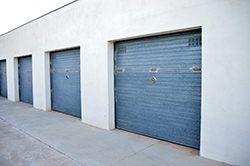
Matt Foster, Executive Vice President at Harvest Small Business Finance, indicated most SBA loans are done on traditional commercial property types such as industrial, office, medical, office, and retail, but borrowers can obtain SBA financing on special-use properties such as hotels, gas stations, car washes, and self-storage facilities. These assets can be difficult to get SBA 504 financing for, but the SBA 7a program is usually an option. “If there is or there is going to be an owner-user business operation at the location, it’s usually eligible (apartments or cannabis dispensaries are not eligible for SBA loans),” says Foster. “The SBA has really opened the door as far as eligibility goes.” The SBA has scaled back restrictions on the personal liquidity of the business owner and expanded the definition of a “small business” to up to $5 million in net income, making loans available to a larger pool of business owners. The SBA has also lowered its fees in recent years. Where the fees of the 7 (a) loans were previously 2.65% across the board, loans below $1 million now have no fee, and for loans between $1 and $2 million, the fee is approximately 1.2%. Loans above $2mm still have a SBA fee of 2.65%.
Pre-Qualify!
Samson and Foster stressed that the most important advice they can give to a business owner (or the broker assisting them) seeking to acquire a property through an SBA loan is to get pre-approved before going into the market to look for a property. “Find out exactly what you qualify for,” says Foster. “You need to know exactly what your loan options are, and if you’re going to stretch for a deal, what the terms look like if you want the strongest possible loan in the market.”
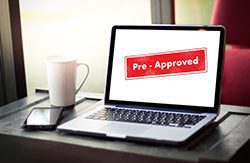
Foster adds that pre-qualification also makes the approval and closing processes much faster. He does “five or six” pre-qualifications a week and says if the client can provide the necessary tax returns and financials, he can often underwrite a deal in 24 hours. “We don’t charge a fee, and we don’t run credit when we do a pre-approval, it’s just kind of a cash flow analysis with some Q&A,” he adds.
For Brokers
Marx stresses that as a broker, “we try not to make the lending aspects of it too much of our business.” Instead, he refers potential property buyers to California Statewide, Harvest, TMC Financing, or another SBA lender. Marx says that “75%–80%” of his owner-occupier sales access the SBA 504 program, and although he “doesn’t push his clients into anything, I tell them it’s the best way to go in most cases.”
If you’re a business owner and think buying versus leasing is a good fit for your business, contact your broker at Voit Real Estate Services. To see if an SBA loan is right for you, contact Craig Samson or Carlo Samson at California Statewide Certified Development Corporation (CDC), Matt Foster at Harvest, or Merri Adams at TMC Financing.
